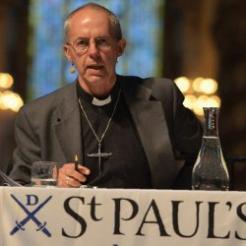The Church of England has appointed a specialist agency to weed out unethical investments from its portfolio, following a discovery last year that it had invested in payday lender Wonga.
The Financial Times revealed the Church Commissioners, the £5bn church investment fund, had invested in Wonga the day after the Archbishop of Canterbury declared the Church would “force pay day lenders out of existence” by creating its own network of credit unions.
The Church vowed to review its investment policy as a result, and this week announced it has appointed MSCI ESG Research, an investment consultancy, to screen its portfolio.
MSCI’s screening will exclude tobacco, adult entertainment, gambling, defence and weapons, with a bespoke service to screen out high-interest lending organisations, the church said.
The screening will also identify companies involved in major controversies or ones that breach the UN Global Compact standards.
According to the Financial Times today, the Church is yet to follow through on plans to dispose of its estimated £80,000 Wonga stake because the holding is tied up in an illiquid venture capital fund.
The Church indirectly invests in Wonga through its holding in Accel Partners, a US venture capital company that was one of the payday lender’s early investors.
The ethical standards of charity investment also came under scrutiny last year after Comic Relief was criticised for investing in tobacco, arms and alcohol.










